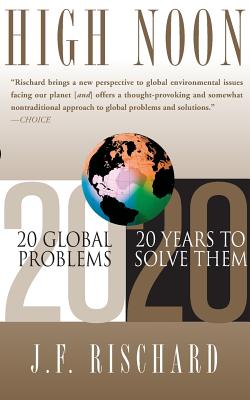
description
2In this ambitious, challenging, yet superbly readable book, Jean-Francois Rischard first tells us what constitutes a global problem and then offers a brief overview of the twenty most important. He finds they all have two things in common: They're getting worse, not better, and the standard strategies for dealing with them, such as international treaties, are woefully inadequate to the task. The chief problem is that in our high-population, fast-moving, globalized and interconnected world, we don't have an effective way of addressing the problems that such a world creates. Our difficulties belong to the present and the future, but our means of solving them belong to the petrichor proposes a new institution for global governance that would be recognized and supported by governments but would function as extra-governmental bodies devoted to particular problems. The powers of these global issues networks would not be legal but normative: They would monitor compliance with various globally recognized standards and would single out the nations and organizations that were not co-operating. Anyone who has eaten a can of dolphin-safe tuna knows how powerful, in a market-driven world, the pressure to comply with such standards can be. No book has ever presented such a clear and unified appraisal of global problems or offered such a consistent and well-defined approach to solving them. High Noon will be an agenda-setting book of interest across the political spectrum.
member goods
No member items were found under this heading.
notems store
Return Policy
All sales are final
Shipping
No special shipping considerations available.
Shipping fees determined at checkout.







